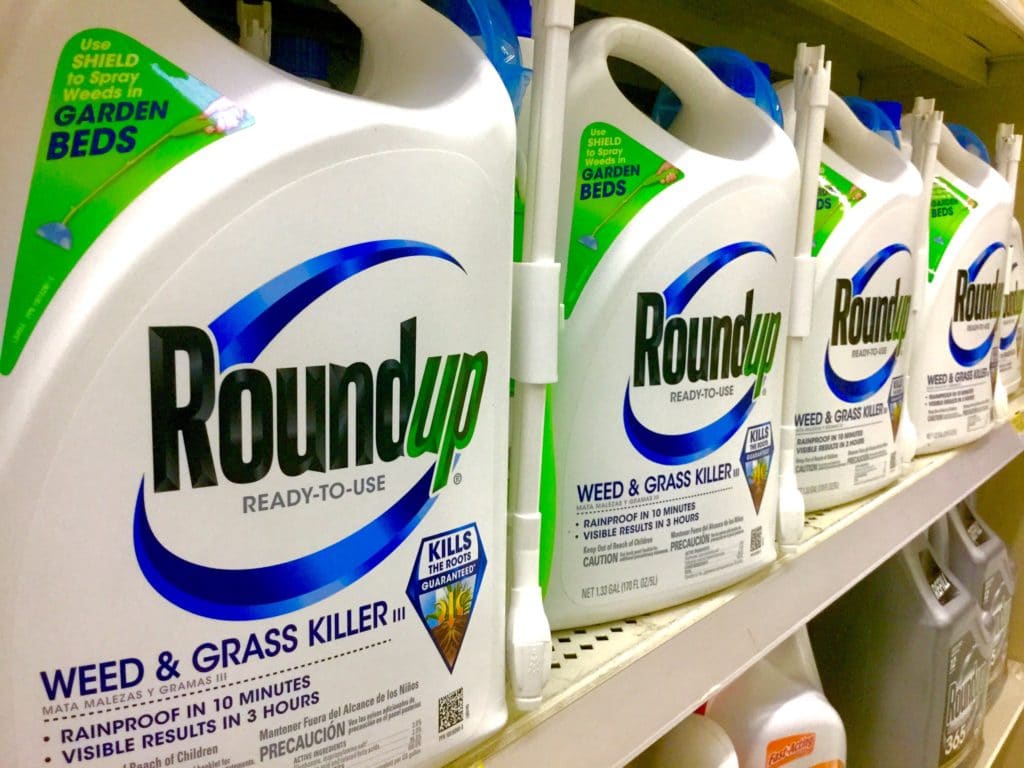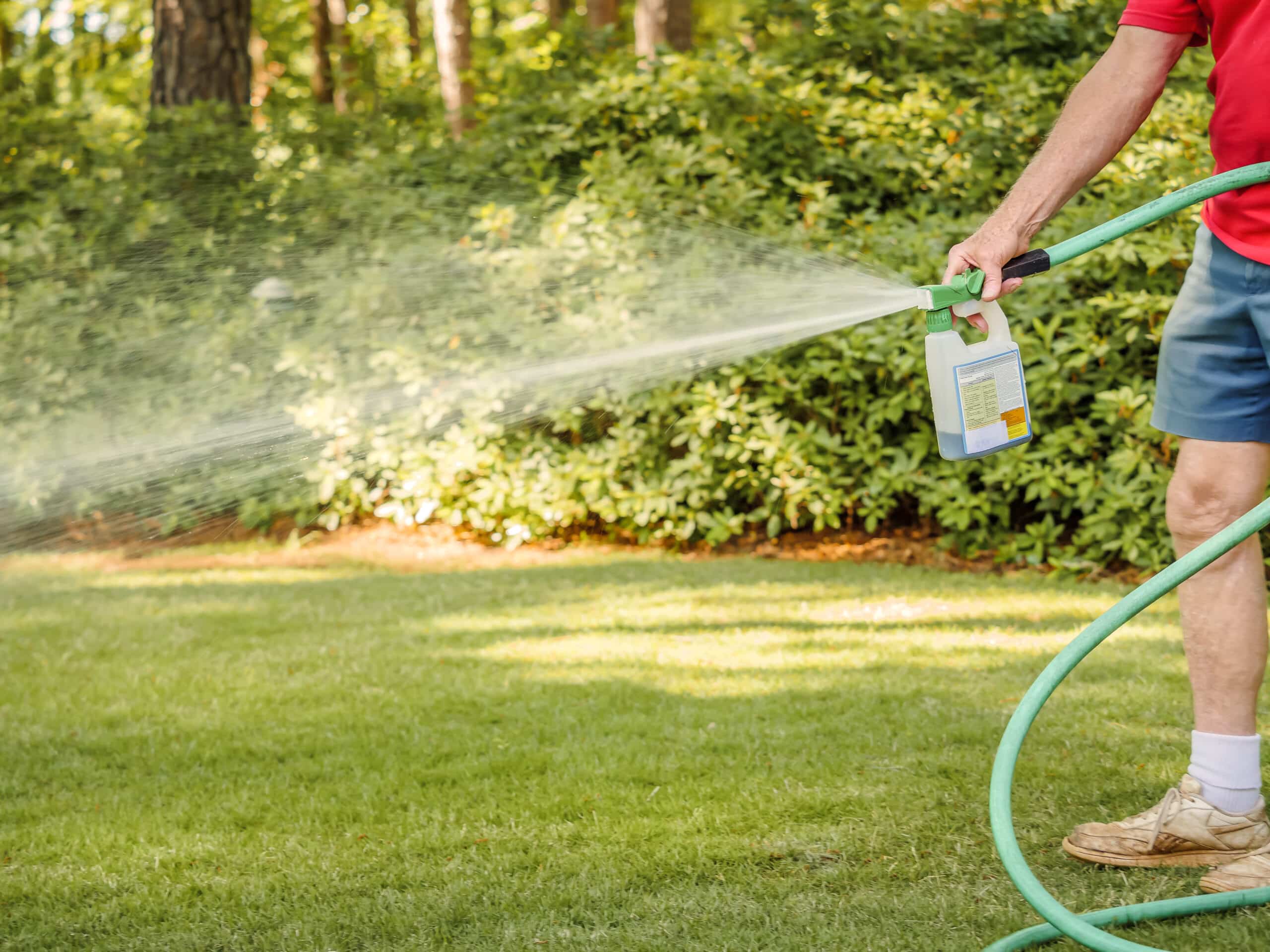
Reject Roundup
Reject Roundup
Friends of the Earth and our allies are calling on Home Depot and Lowe’s to end sales of Roundup and other hazardous pesticide products linked to pollinator declines and harms to human health. It’s reckless to sell consumers products that put people and pollinators at risk when safer organic alternatives exist.
Glyphosate, historically the main active ingredient in Roundup, has been linked to cancer. As if that wasn’t bad enough, Bayer – the manufacturer of Roundup – has started swapping out glyphosate for mixtures of chemicals that are even more toxic to human health and the environment – diquat dibromide, fluazifop-P-butyl, triclopyr, and imazapic. Friends of the Earth’s analysis found new and more toxic Roundup products for sale at Home Depot and Lowe’s in 2024. We need Home Depot and Lowe’s to build on their earlier commitments to phase out bee-killing neonicotinoid pesticides in their supply chains by taking decisive action on Roundup and shifting to safer alternatives.
Media
Pollinator Health
Glyphosate, historically the main active ingredient in Roundup, is a primary driver of monarch butterfly declines because its use has wiped out the only plant monarch young feed on, milkweed, along their migration route. It is also associated with harm to honeybees including negative impacts on larval development, cognitive abilities, colony parasite load, and gut microbiota. The active ingredients in new Roundup formulations are also associated with harm to biodiversity, including negative impacts on birds, bees, earthworms, fish, and other aquatic organisms. They are also significantly more persistent in the environment than glyphosate, on average, and more likely to leach down into groundwater, increasing the risk of contaminating waterways and drinking water.
Human Health
Glyphosate is classified as a probable human carcinogen by the World Health Organization. Over 165,000 people have sued Roundup manufacturer Bayer-Monsanto, linking their cancer to exposure to the hazardous weedkiller. Bayer is paying billions to settle the lawsuits, but Roundup continues to be sold for use on yards, school grounds, public parks, and farms without any safety warning. Glyphosate has also been linked to high rates of kidney disease in farming communities and to shortened pregnancy in a cohort of women in the Midwest. Animal studies and bioassays link glyphosate and its formulations to Parkinson’s, endocrine disruption, DNA damage, decreased sperm function, disruption of the gut microbiome, and fatty liver disease.
New active ingredients in Roundup that have begun to replace glyphosate are even more toxic to human health. The chemicals in new Roundup formulations have been linked to birth and developmental abnormalities, reproductive dysfunction, kidney or liver damage, and irritation and inflammation affecting the skin, eyes, or respiratory system. The worst offender is diquat dibromide, now present in all the new Roundup lawn and garden formulations. Diquat dibromide is 200 times more toxic than glyphosate in terms of long-term, chronic exposure, is classified as a highly hazardous pesticide. Diquat dibromide and imazapic are banned in the EU.
Learn more about how glyphosate and other toxic pesticides affect your health.
A Toxicity Analysis
Herbicides sold at Home Depot and Lowe’s.
Organic Alternatives
We need Home Depot and Lowe’s to replace Roundup with organic and safer alternatives, not other toxic products. According to our analysis, half of the weedkillers sold by Home Depot and Lowe’s contain highly hazardous chemicals. The good news is, both companies already offer organic and other least-toxic products. Now, we need them to phase out the most hazardous products and increase safer options.
Calling out Home Depot and Lowe’s
We demanded change in the companies’ hometown newspapers. Check out the Home Depot ad in the Atlanta Journal-Constitution and the Lowe’s ad in the Charlotte Observer.
Resources
Ways to Support Our Work

Read Latest News
Stay informed and inspired. Read our latest press releases to see how we’re making a difference for the planet.

See Our Impact
See the real wins your support made possible. Read about the campaign wins we’ve fought for and won together.

Donate Today
Help power change. It takes support from environmental champions like you to build a more healthy and just world.

